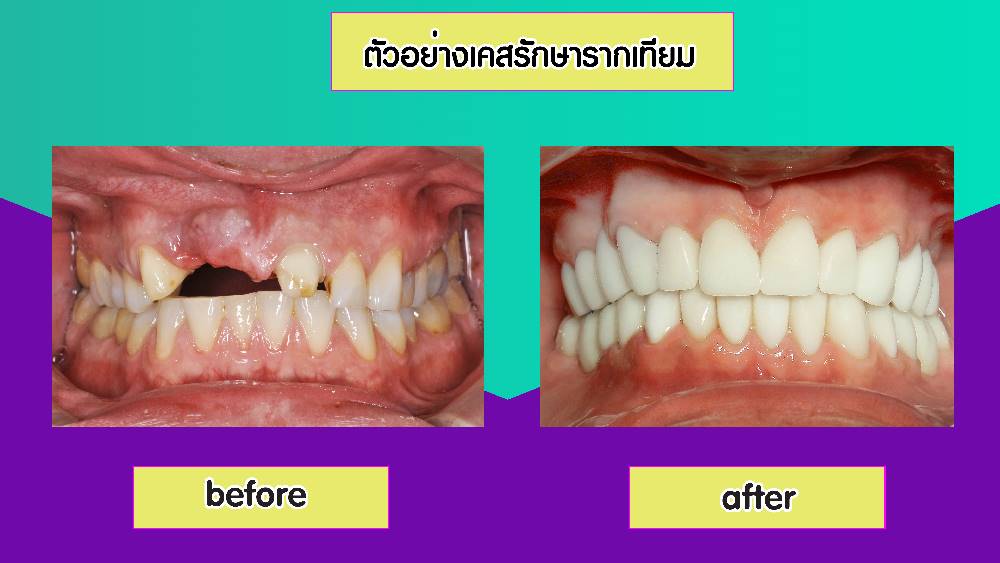
Implants
Dental Implants is another method of dental treatment that will help people with tooth loss due to various reasons such as broken teeth and tooth decay. Aside from the aesthetic benefit, dental implants help restore the ability to use teeth for proper chewing and speaking.
In addition, dental implants give a more natural feeling than dentures in general.
It is the one of the greatest revolutionary treatment developed in the dental industry that allows the patient to replace missing tooth that mimic closely the function of natural teeth. This is because the implant is attached securely into the jawbone like natural tooth roots. Compared to dentures, dental implants will keep you from worrying of falling-off denture while speaking or eating, and blends seamlessly with your existing natural teeth.
Material Used and Characteristics of Dental Implants
Currently, implants are manufactured from titanium materials. Which is a special metal that will help attach to the bone very well, it does not cause allergic reactions to the body. Titanium is very compatible with the tissues in the human body. In general, implants are spiral or cylindrical, 6-15 millimeters long, 3-5 millimeters in diameter. Dental implants can be used to replace 1 missing tooth with crown attached to it, or several missing teeth with dental bridge or to make denture more stable.
Composition of Dental Implants
1. Body implant which is implanted into the jawbone that acts as a root.
2. Denture core – this element is made up of titanium material. It is the part that is connected the implant root which is where the denture or crown is attached to.
3. Crown or denture
Avantages of implants
Dental implant helps in preventing jawbone loss or bone deterioration as well as restoring the beautiful smile to people with tooth loss. Without replacing the missing tooth for a long time will result in atrophied overtime. Using denture is okay for some time but in time dentures become loose and cheek will sag, which will make a person looking older than he or she actually is.
Another advantage of implants is eliminating more problem for other teeth in future when making dental bridge, because there is no need to grind-down the adjacent teeth to be used as abutment for the bridge.
Restrictions of Implants
Dental implants may not be possible for people with health problems such as diabetes, improper gum or jawbone conditions due to the risk of performing the surgery. Another clear limitation is the duration of treatment, which takes several appointments at few months apart.
Preparation for Dental Implants
A person who is thinking of getting an implant must have healthy gums and enough bones to support the implant root. A person must follow a strict oral hygiene care which the dentist will assess through treatment planning, and undergo oral examination together with x-ray to analyze various factors whether the person is ready to make dental implants or not.
Dental Implant Care
A person with dental implant should maintain a regular routine of dental care just like the care a person gives for natural teeth, such as brushing teeth properly at least 2 times a day or after meals, and regular use of dental floss. Brushing teeth cleans most surface of the teeth, however floss is needed to clean in between teeth where food can be trapped which when if not removed will start plaque build-up and overtime will cause the gums around the implant become inflamed that can lead to the loss of the implant.
Dental implants can last up to 10-20 years, and in order for this to be possible, the you should follow the dentist’s instructions strictly to make sure you are taking care of your implant the right way. Therefore, people who have implants should always take good care of their oral health and should go to the dentist as scheduled every time.
Skytrain Dental Group





